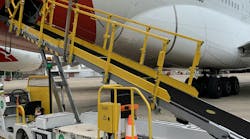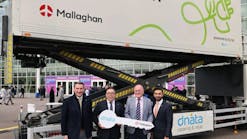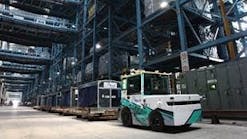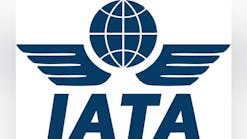dnata, a leading global air and travel services provider, has received the Aviation Sustainability and Environment accolade at the Aviation Industry Awards UK. The recognition highlights the company’s efforts to improve environmental efficiency across its diverse operations, including its Airport Operations, Travel and Catering & Retail business units.
The Aviation Industry Awards celebrate the most innovative individuals and companies driving excellence in the UK's aviation sector.
Stewart Angus, dnata’s Regional CEO for Europe, who accepted the award on behalf of the company, said: “We are incredibly proud to receive this prestigious award, especially in such an important category. Being selected from a shortlist of leading aviation companies shows the real impact our teams are making through their hard work and dedication in reducing our environmental footprint. We will continue to work closely with our partners to drive a positive change in the aviation industry.”
Significant Improvements Across Key Performance Metrics
dnata recently reported significant improvements across key environmental performance metrics for the financial year 2023-24. As a result of its consistent approach and initiatives, the company cut the carbon intensity of its operations by over 8%, 22% and 26% across its airport operations, travel and catering businesses, respectively. All data has been validated by Verifavia, an independent accredited environmental verification and auditing body.
Investing in Renewable Energy
dnata minimizes emissions across its businesses using renewable energy where available, and in some markets, such as the UK and Ireland, it exclusively procures solar and wind energy. Most recently, it has installed solar panels across several facilities in Pakistan and the Philippines to avoid consuming fossil-fuel powered electricity.
Transforming Fleet
dnata also consistently invests in its modern fleet to improve environmental efficiency. Its fleet strategy commits to phasing out diesel-operated engines and switching to hybrid, electric, or hydrogen wherever airports have provided the necessary infrastructure. As a result of its investments in recent years, 65% of dnata’s fleet is now electric in the Netherlands, 44% in Italy, 40% in the UK, and 39% in Switzerland.
Minimizing Fuel Consumption with the Latest Technologies and Training
dnata maintains a strong focus on minimizing fuel consumption. It monitors the consumption of fuel across its fleet of ground support equipment (GSE) using Vehicle Tracking Management systems; conducts logistics mapping exercises to ensure minimal distances are travelled airside; and optimizes shifts and parking slots to avoid excessive fuel burn.
In addition, it tracks the behaviour of drivers, including vehicle idling times, and has key performance indicators linked to the environmental management system. dnata promotes more responsible driver behaviour through education, awareness and training.
Engaging with Alternative Fuel Suppliers
dnata actively engages with biofuel suppliers to reduce emissions. Several of dnata’s businesses have already deployed low carbon alternatives to replace diesel: in Schiphol airport, it has replaced over 674,000 litres with hydrotreated vegetable oil (HVO100) in the previous financial year.
Most recently, it has transitioned its entire non-electric fleet to biodiesel at the two Dubai airports, Dubai International (DXB) and Al Maktoum - Dubai World Central (DWC).
Reducing Waste to Landfill
dnata actively minimizes waste across its operations through consistent initiatives. Its catering & retail teams are working closely with many of its airline customers to analyse consumption trends and use predictive data to optimize the loading of F&B for in-flight catering. Analysis of on-board data not only reduces food waste but also fuel burn associated with carrying excess weight.
dnata has also taken further initiatives across its business units to recycle materials. Its cargo businesses have implemented circular economy principles to repurpose plastics into materials for other industries. Meanwhile, several of its catering businesses eliminated single-use plastics across their operations.






